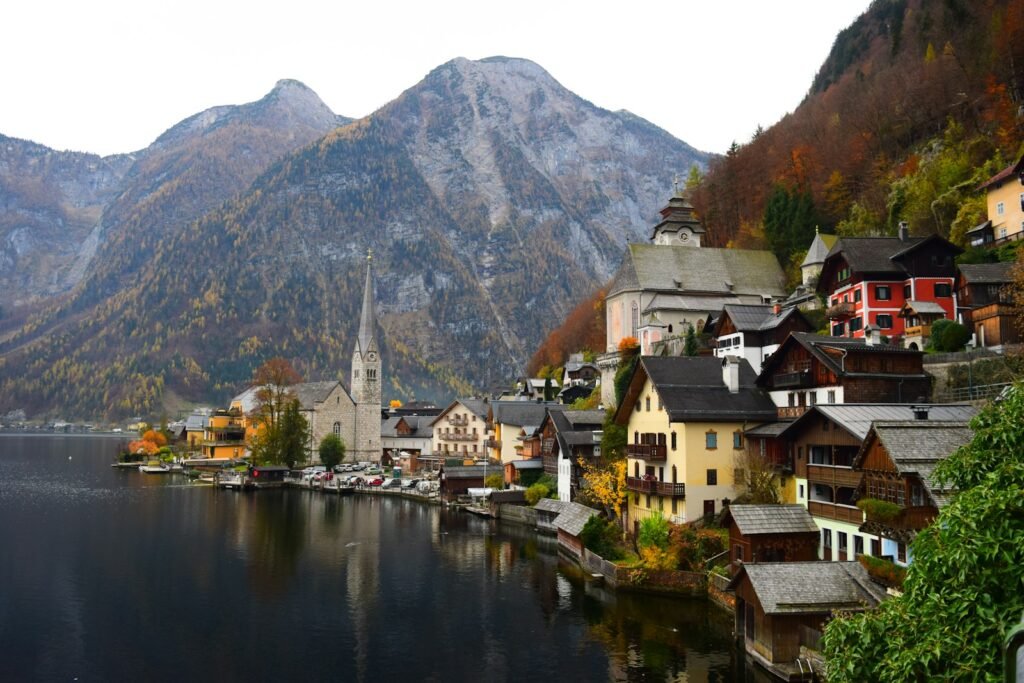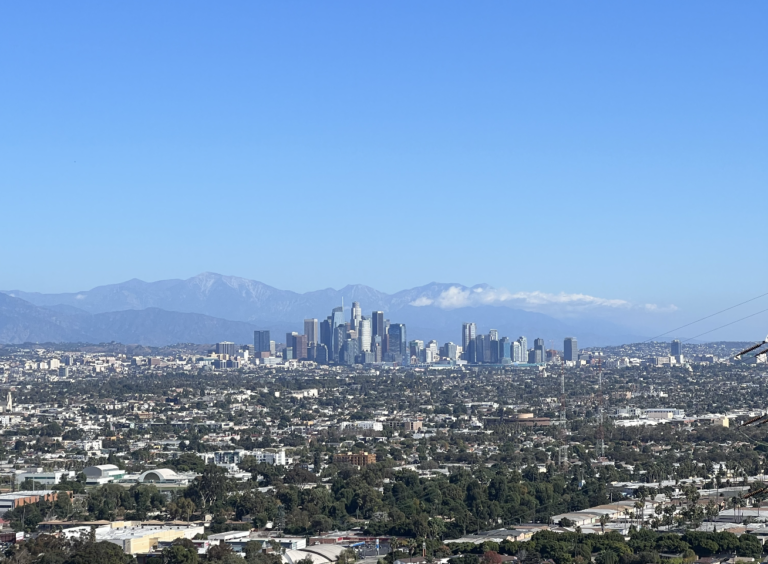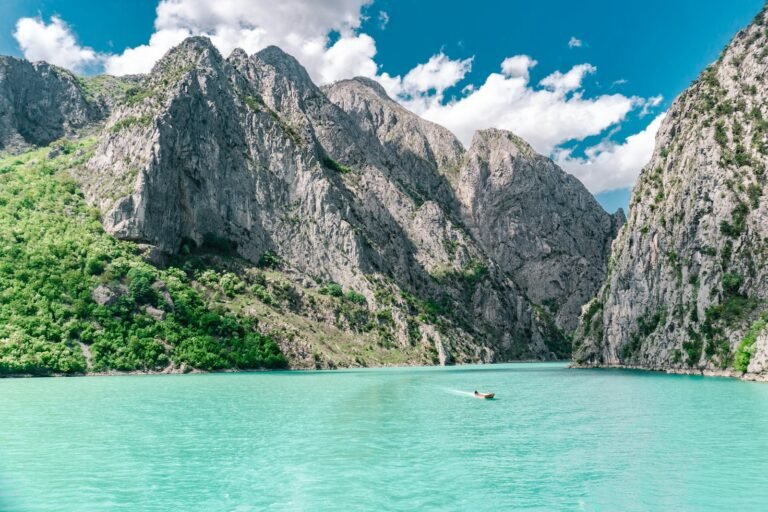Austria Digital Nomad Visa: How to Work Remotely from the Alps
Austria might not have an official digital nomad visa, but that doesn’t mean remote workers can’t enjoy its breathtaking landscapes, high quality of life, and rich cultural scene. If you’re a freelancer or entrepreneur looking to stay in Austria for an extended period, there are workarounds that make it possible.
In this guide, we’ll cover:
- Visa options for digital nomads in Austria
- Requirements and eligibility
- Costs and tax considerations
- Best cities for remote work in Austria
Let’s dive in!
1. Does Austria Have a Digital Nomad Visa?
If you’re a digital nomad dreaming of working remotely while enjoying Austria’s stunning alpine landscapes, rich culture, and high quality of life, you might be wondering if the country offers a digital nomad visa. The short answer is no—Austria does not currently have a visa specifically designed for digital nomads, unlike countries such as Portugal, Spain, or Estonia.
However, that doesn’t mean remote workers are completely out of options. Austria has alternative visa pathways that might work depending on your circumstances. Two of the most viable options for freelancers, entrepreneurs, and remote workers looking to stay long-term in Austria are:
- The Red-White-Red Card for self-employed key workers – Suitable for entrepreneurs and highly skilled freelancers whose business provides significant economic value to Austria.
- The Long-Term Residence Permit for financially independent individuals – Ideal for those who can support themselves without needing local employment.
While these options are not designed explicitly for digital nomads, they can serve as workarounds for those who qualify. Let’s take a closer look at how they work and whether they might be the right fit for you.
The Red-White-Red Card for Self-Employed Key Workers
The Red-White-Red Card is Austria’s version of a skilled worker visa, but it also has a category for self-employed key workers. This means that if you run a business or offer freelance services that are considered valuable to the Austrian economy, you could qualify.
To be eligible, you need to prove that your business or work benefits Austria—this could mean creating jobs, bringing investment into the country, or offering services that fill a gap in the market. Some examples of self-employed key workers might include:
- Entrepreneurs starting innovative businesses
- Tech professionals offering in-demand IT or software services
- Consultants with expertise in high-value industries
This visa is valid for up to two years and can be renewed if you continue to meet the eligibility criteria. However, it can be a challenging process since the Austrian government is strict about what qualifies as “economic benefit.” If you’re a typical remote worker employed by a company outside Austria, this option may not be suitable.

Long-Term Residence Permit (Finanzierungsnachweis)
If you don’t plan on working with Austrian clients or running a business in the country but want to live in Austria while working remotely, you might qualify for the residence permit for financially independent individuals.
To be eligible, you must:
- Show proof of sufficient financial resources (typically around €2,500 per month for a single applicant)
- Have comprehensive health insurance that covers Austria
- Demonstrate that you won’t take a job in Austria
This permit allows you to stay in Austria for one year and can be renewed annually. While it provides a way for remote workers and digital nomads to live in Austria, one of the biggest challenges is the limited number of permits available each year.
You want the mountains, charm but you also want pizza and pasta? Check out my guide to Italy Digital Nomad Visa: Your Guide to Living and Working in Italy (2025)
2. Austria Digital Nomad Visa Alternatives
Here are the best visa options for digital nomads in Austria:
A) Red-White-Red Card for Self-Employed Key Workers
✅ Best for: Entrepreneurs and high-skilled freelancers
⏳ Duration: Up to 2 years, renewable
💰 Income Requirement: Your business must show “considerable economic benefit” to Austria
This is one of the best visa options if you’re a freelancer or entrepreneur with a business that contributes to the Austrian economy. However, proving “economic benefit” can be challenging, and you’ll need strong documentation to support your application.
B) Long-Term Residence Permit (Finanzierunsgnachweis)
✅ Best for: Financially independent individuals
⏳ Duration: 12 months, renewable
💰 Income Requirement: Around €2,500/month (higher for families)
If you have passive income, savings, or remote work income but don’t plan to take on local clients, this residence permit could be an option. However, you cannot work for an Austrian employer under this permit.

C) Schengen Visa + Border Hopping
✅ Best for: Short-term stays (90 days)
⏳ Duration: 90 days in a 180-day period
💰 Income Requirement: None (but proof of funds may be required)
If you only plan to stay for a few months, the standard Schengen tourist visa (or visa-free travel for certain nationalities) allows you to stay in Austria for up to 90 days within a 180-day period. Some nomads use this strategy while rotating between different European countries.
3. Costs and Tax Considerations
If you’re considering Austria as your base as a digital nomad or remote worker, it’s essential to understand the costs and tax implications associated with living there. Austria is known for its high quality of life, but this comes with relatively high living expenses and a complex tax system. Below, we’ll break down the key costs you should consider before making the move.
Visa Fees 💵
The cost of obtaining a visa or residence permit in Austria varies depending on the type of permit you apply for. Here’s a general breakdown of the fees:
- Red-White-Red Card: Approximately €120–€150 for application and processing fees
- Long-Term Residence Permit: Typically €100–€150
- EU Blue Card (for highly skilled workers): Around €160
These fees cover the administrative processing of your application but do not include other potential costs, such as legal consultation fees, translation services, or required health insurance. Be sure to check the latest visa fees with the Austrian immigration authorities before applying.
Living Costs in Austria 🏡
Austria offers a high standard of living, but your monthly expenses will depend on your location and lifestyle. Major cities like Vienna and Salzburg tend to be more expensive than smaller towns or rural areas. Below is a rough estimate of monthly living costs for a digital nomad or remote worker:
| Expense | Estimated Cost (per month) |
|---|---|
| Rent (1-bedroom apartment in Vienna) | €900–€1,600 |
| Rent (1-bedroom apartment in smaller cities) | €700–€1,200 |
| Utilities (electricity, heating, internet, etc.) | €150–€250 |
| Groceries | €300–€500 |
| Public Transport | €30–€60 |
| Dining Out & Entertainment | €200–€500 |
| Health Insurance (mandatory for non-EU residents) | €100–€300 |
On average, expect to spend €1,500–€3,000 per month, with Vienna being on the higher end. If you choose a smaller city or a co-living arrangement, you may be able to reduce costs significantly.
Taxes in Austria 🛂
Austria has a progressive tax system with high tax rates for residents earning income locally. If you’re working remotely for a foreign company and have a residence permit without local employment, you might not be liable for Austrian taxes. However, tax residency depends on several factors:
- If you stay in Austria for more than 183 days in a calendar year, you are generally considered a tax resident.
- Tax residents are taxed on worldwide income, while non-residents are only taxed on Austrian-sourced income.
- Austria has one of the highest income tax rates in Europe, with a progressive scale ranging from 20% to 55%.
To avoid potential tax issues, consult a tax expert specializing in Austrian and international taxation. You may also need to check whether your home country has a tax treaty with Austria to prevent double taxation.
4. Best Cities for Digital Nomads in Austria
Austria is an excellent destination for digital nomads seeking a balance between modern infrastructure, natural beauty, and rich cultural experiences. While the country may not have a dedicated digital nomad visa, it offers a high standard of living, reliable internet, and a variety of cities catering to different lifestyles. Whether you prefer the cosmopolitan energy of Vienna, the outdoor adventures of Innsbruck, or the artistic charm of Salzburg, Austria has something for every type of remote worker.
Here are the top cities in Austria for digital nomads, each offering unique advantages depending on your preferences and work style.
Vienna – The Cosmopolitan Hub for Digital Nomads
Vienna, Austria’s capital and largest city, is often ranked among the world’s most livable cities. For digital nomads, it offers an excellent mix of historic charm, modern infrastructure, and a thriving entrepreneurial scene.
One of the biggest advantages of living in Vienna is the abundance of coworking spaces, cafes, and libraries that provide a productive environment for remote work. Spaces like Impact Hub, WeXelerate, and Talent Garden cater specifically to entrepreneurs, freelancers, and creatives looking to network and collaborate. Many of these spaces also offer networking events, workshops, and opportunities to connect with other professionals.
Vienna’s public transport system is one of the most efficient in Europe, making it easy to navigate the city without the need for a car. The U-Bahn (subway), trams, and buses connect all major districts, and a monthly pass is affordable compared to other major European cities.
For digital nomads who love coffee culture, Vienna is an ideal place to work from one of its many historic cafés. Places like Café Central, Café Sperl, and Phil provide a cozy yet sophisticated atmosphere where you can work while enjoying world-famous Austrian pastries and coffee.
Additionally, Vienna offers a high quality of life, with excellent healthcare, safety, and a variety of cultural experiences. From the Vienna State Opera to contemporary art galleries and music festivals, there’s always something happening in the city.
Best for: Digital nomads who want a dynamic city with strong infrastructure, coworking spaces, and cultural activities.

Innsbruck – The Mountain Escape for Outdoor Enthusiasts
For digital nomads who love outdoor adventure, Innsbruck is the perfect base. Surrounded by the breathtaking Austrian Alps, this city offers some of the best skiing, snowboarding, hiking, and mountain biking in Europe. If you prefer working in a city that blends nature with modern amenities, Innsbruck provides the best of both worlds.
While Innsbruck is smaller than Vienna, it has a growing digital nomad community thanks to its active lifestyle and university presence. There are coworking spaces such as Werkstätte Wattens and Coworking Innsbruck, offering a mix of modern office setups and collaborative working environments.
The cost of living in Innsbruck can be higher than other Austrian cities due to its popularity as a tourist destination, but it is well worth it for those who prioritize access to nature and outdoor activities. The city has a relaxed atmosphere, making it ideal for digital nomads who want to escape the hustle and bustle of a big metropolis while still having access to high-speed internet and good workspaces.
Best for: Digital nomads who love nature, skiing, hiking, and a more laid-back lifestyle.
Salzburg – A Cultural and Creative Hotspot
Salzburg is best known as the birthplace of Wolfgang Amadeus Mozart and the filming location for The Sound of Music, but it’s also a fantastic place for digital nomads who appreciate history, culture, and a slower pace of life.
With its well-preserved Old Town, stunning baroque architecture, and charming cobblestone streets, Salzburg provides an inspiring setting for remote workers. The city has a vibrant arts and music scene, with frequent concerts, theater performances, and film festivals.
Although Salzburg does not have as many coworking spaces as Vienna, options like Coworking Salzburg and Base Salzburg provide comfortable work environments with strong WiFi and networking opportunities. Additionally, many of the city’s cafés and boutique hotels offer work-friendly spaces with stunning views of the Hohensalzburg Fortress or the Alps.
One of the main advantages of living in Salzburg is its walkability. The city is compact, meaning you can easily explore it on foot or by bicycle. Public transport is also reliable, connecting the city with nearby destinations such as Hallstatt, Berchtesgaden, and Munich for weekend getaways.
Best for: Digital nomads who value culture, history, and a charming, slower-paced environment.
Graz – The Laid-Back University City with a Growing Digital Nomad Community
Graz, Austria’s second-largest city, is an underrated gem for digital nomads. Known for its student population, creative scene, and relaxed vibe, Graz is an excellent alternative to Vienna for those who want a more affordable and community-driven atmosphere.
Graz has a thriving startup and tech scene, with many young entrepreneurs choosing the city due to its lower cost of living and university-driven innovation. The presence of institutions like Graz University of Technology and Karl-Franzens University has led to a high concentration of young professionals, making it a great place to network and collaborate.
Coworking spaces like Das Liebig and SPACELEND cater to freelancers and remote workers, providing flexible work environments and opportunities to meet other professionals. The city also has plenty of parks, riverside cafes, and open-air markets, making it a pleasant place to work remotely.
Food and drink culture in Graz is also noteworthy. The region is famous for its Styrian wines, pumpkin seed oil, and farm-to-table cuisine, offering plenty of opportunities for food lovers to explore local flavors.
Best for: Digital nomads who want a laid-back, affordable city with a growing remote work community.
5. Final Thoughts: Is Austria a Good Choice for Digital Nomads?
Austria is a country that seamlessly blends old-world charm with modern infrastructure, making it an attractive destination for digital nomads who prioritize quality of life, safety, and efficiency. However, while it offers a high standard of living, Austria is not necessarily the easiest place for digital nomads to settle due to its strict visa policies and relatively high cost of living. Unlike some other European countries that have introduced dedicated digital nomad visas, Austria requires remote workers to navigate alternative visa options, such as the Red-White-Red Card for Self-Employed Key Workers or the Long-Term Residence Permit. These permits come with income requirements and restrictions, meaning Austria may not be the most flexible choice for digital nomads who prefer a more spontaneous or short-term stay.
That said, for those who qualify for the right visa or permit, Austria has plenty to offer in terms of lifestyle, work-life balance, and cultural experiences.
Why Austria is an Attractive Destination for Digital Nomads
Despite the visa challenges, Austria remains a fantastic place to live and work remotely. Here’s why:
1. World-Class Infrastructure and High-Speed Internet
Austria ranks among the best in Europe when it comes to infrastructure. Whether you’re in Vienna, Graz, or Innsbruck, you’ll find reliable high-speed internet, an essential factor for digital nomads who rely on stable connections for work. Many cities have extensive 5G coverage, and coworking spaces and cafés are equipped with fast Wi-Fi, making it easy to work from anywhere.
The country also boasts an efficient public transportation system, with Vienna’s subway and tram system ranked among the best in the world. If you prefer working in different locations, Austria’s well-connected rail network makes it easy to travel between cities and even neighboring countries like Germany, Italy, Switzerland, and Hungary.
2. Safety, Stability, and Quality of Life
Austria consistently ranks as one of the safest and most stable countries in the world. Crime rates are low, and the government provides a strong social security system. For digital nomads who prioritize safety and stability, Austria offers a stress-free living environment.
The country also has an excellent healthcare system, which is accessible to residents and expats who meet the visa or insurance requirements. The healthcare quality is on par with Switzerland and Germany, meaning digital nomads can feel secure knowing they have access to top-tier medical services if needed.
3. Natural Beauty and Outdoor Activities
One of Austria’s biggest draws is its breathtaking natural landscapes. From the snow-capped Alps to the serene Danube River and lush vineyard regions, Austria is a paradise for those who enjoy outdoor adventures.
- In Innsbruck and Salzburg, you’ll find some of the best skiing, snowboarding, and hiking trails in Europe.
- Vienna and Graz offer easy access to wine country, ideal for weekend getaways.
- The Salzkammergut region, home to the picturesque Hallstatt, is a must-visit for nature lovers.
- Lakes like Wolfgangsee and Wörthersee provide summer escapes with crystal-clear waters and breathtaking views.
For digital nomads who enjoy balancing work with outdoor activities, Austria provides a unique mix of urban and natural settings that make it easy to unplug after work.
4. A Rich Cultural Scene and Work-Life Balance
Austria is deeply rooted in history, art, and music. Whether you’re attending an opera in Vienna, exploring medieval castles, or visiting one of its many museums and galleries, there’s no shortage of cultural experiences.
Additionally, Austria is known for having a healthy work-life balance. Unlike in some high-pressure work environments, Austrian culture values leisure, time off, and personal well-being. Digital nomads can take advantage of this mindset to enjoy a more balanced lifestyle while working remotely.
Challenges of Living in Austria as a Digital Nomad
While Austria has plenty of advantages, it also comes with some challenges:
1. No Dedicated Digital Nomad Visa
Unlike Portugal, Spain, or Estonia, Austria does not have a specific visa for digital nomads, making it more complicated for remote workers to settle legally. Most visas require either:
- A business presence in Austria (as with the Red-White-Red Card).
- Proof of financial independence (as with the Long-Term Residence Permit).
- Frequent visa runs if staying on a Schengen Visa.
For long-term stays, digital nomads need to carefully plan their visa strategy to avoid legal issues.
2. High Cost of Living
Austria is not the cheapest country in Europe, especially in cities like Vienna and Innsbruck, where rent and daily expenses can be high. On average:
- Rent for a one-bedroom apartment in Vienna can cost €900–€1,500 per month.
- Monthly expenses, including food, transportation, and entertainment, range between €1,500 and €3,000, depending on lifestyle.
For digital nomads on a tight budget, Portugal, Hungary, or the Czech Republic may be more affordable alternatives.
3. Language Barrier in Certain Regions
While English is widely spoken in Vienna and Graz, smaller towns and rural areas can have a strong language barrier. If you plan to stay long-term, learning some German will make daily life much easier.
Who Should Consider Austria as a Base?
Austria is an excellent option for digital nomads who:
✅ Are entrepreneurs, freelancers, or financially independent individuals who qualify for one of the visa options.
✅ Want to live in a safe, stable, and high-quality environment.
✅ Enjoy cultural activities, music, and history.
✅ Love outdoor adventures and want easy access to mountains, lakes, and nature.
✅ Prefer a balanced work-life culture rather than a high-pressure, fast-paced lifestyle.
However, if you’re looking for a cheap, flexible, and visa-friendly digital nomad hub, Austria may not be the best fit. In that case, places like Portugal, Spain, or Georgia offer more lenient visa options and lower living costs.
Final Verdict: Is Austria Worth It for Digital Nomads?
Austria is not the easiest country for digital nomads due to its strict visa policies, but for those who qualify for a long-term stay, it provides an exceptional quality of life, world-class infrastructure, and stunning natural beauty.
If you’re a freelancer, entrepreneur, or financially independent traveler who values a mix of safety, culture, and outdoor activities, Austria is definitely worth considering as your next base. While it may not have the same nomad-friendly perks as some other European destinations, its livability, efficiency, and scenic landscapes make it a fantastic place to work remotely—if you can navigate the visa requirements.
For those who can afford it and plan ahead, Austria could be one of the best-kept secrets for digital nomads looking for a stable, high-quality base in Europe.







